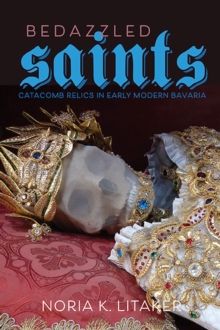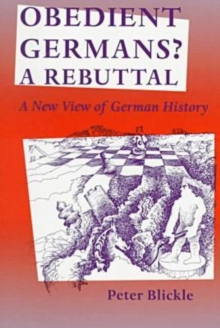
Four Fools in the Age of Reason : Laughter, Cruelty, and Power in Early Modern Germany Hardback
by Dorinda Outram
Part of the Studies in Early Modern German History series
Hardback
Description
Unveiling the nearly lost world of the court fools of eighteenth-century Germany, Dorinda Outram shows that laughter was an essential instrument of power.
Whether jovial or cruel, mirth altered social and political relations. Outram takes us first to the court of Frederick William I of Prussia, who emerges not only as an administrative reformer and notorious militarist but also as a ""master of fools,"" a ruler who used fools to prop up his uncertain power.
The autobiography of the itinerant fool Peter Prosch affords a rare insider's view of the small courts in Catholic south Germany, Austria, and Bavaria.
Full of sharp observations of prelates and princes, the autobiography also records episodes of the extraordinary cruelty for which the German princely courts were notorious.
Joseph Froehlich, court fool in Dresden, presents more appealing facets of foolery.
A sharp salesman and hero of the Meissen factories, he was deeply attached to the folk life of fooling.
The book ends by tying the growth of Enlightenment skepticism to the demise of court foolery around 1800. Outram's book is invaluable for giving us such a vivid depiction of the court fool and especially for revealing how this figure can shed new light on the wielding of power in Enlightenment Europe.
Information
-
Available to Order - This title is available to order, with delivery expected within 2 weeks
- Format:Hardback
- Pages:184 pages, 8 black & white illustrations
- Publisher:University of Virginia Press
- Publication Date:30/04/2019
- Category:
- ISBN:9780813942018
Information
-
Available to Order - This title is available to order, with delivery expected within 2 weeks
- Format:Hardback
- Pages:184 pages, 8 black & white illustrations
- Publisher:University of Virginia Press
- Publication Date:30/04/2019
- Category:
- ISBN:9780813942018










